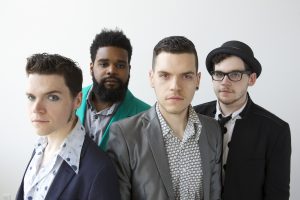
Charleston, South Carolina four piece A Fragile Tomorrow are releasing their fifth studio album Make Me Over, their label debut from MPress Records. The album was self-produced and self-engineered, recorded at Low Watt Recording studios in Savannah, Georgia the studio run by band members Sean and Dominic Kelly, identical brothers. They mixed it with Grammy winning producer Malcolm Burn. Make Me Over is being released October 16.
Make Me Over is saturated with the transformative/transgressive air of rock n’ roll androgyny inhabiting songs that are complex yet immediately infectious. The album explores new sonic territory for the band inspired by the bold aesthetic explorations of David Bowie, T. Rex, and Brian Wilson as well as the frantic energy of Cheap Trick and The Who. Their performances are thick and swirling with dense layers of multiple guitars and heady vocal harmonizing. Special guests include folk legend Joan Baez, Amy Ray and Emily Saliers of Indigo Girls, Mark Hart of Crowded House, Vicki Peterson of The Bangles, and John Cowsill of The Beach Boys
Ghettoblaster recently spoke with Sean Kelly about the album. This is what he told us.
When did you begin writing the material for your most recent album?
The first song, ’Kissing Games,’ started about two and a half, maybe three years ago. I shelved it for a long time and it went through a bunch of changes before I landed on the final version. Another song, ’Tie Me Up Again,’ was written maybe two years ago and sort of became the blueprint for how the record was composed and the stylistic direction. I took a pretty long break after those two songs, and very slowly built up a collection of little parts or ideas over time. It wasn’t until we landed on a production concept that I started piecing everything together.
What was the most difficult song to take from the initial writing stage through recording and mixing? Why was it so troublesome?
That’s a tough one, because this entire record was challenging from a writing standpoint. In the end it turned out to be the most rewarding experience we’ve had as a band and I’ve had compositionally speaking, but the process was an uphill battle because there was so much I felt I needed to accomplish from a musical standpoint. I spent months trying to make sense of where the songs were headed. It was important to have an idea of how the songs could work together on a record before I finished them.
The most difficult was probably ‘Hit Parade,’ if I had to choose. I had the idea floating around for what felt like forever, and some of the parts were there, but it took a long time to get a feel for what the song would sound like. I really tried to figure out how to shape the verses melodically in a way that would be rhythmic and weird. Recording was fairly simple once the music was down, but I literally wrote version after version of the lyrics up until I was 100 percent confident. The day after I wrote the final version, I went in and sang it. I’d say that song was fully recorded, sans vocals, for about six months before it was actually finished.
Which of the songs on the record is most different from your original concept for the song?
Both ‘Tell Me How To Feel’ and ‘In My Mind’ are particularly different. ‘In My Mind’ started out just completely different rhythmically, and morphed into what it is now over a long period of time. I was pretty afraid of that song for a number of reasons and wound up putting it away for a while. In the end, I’d say it’s the most interesting mix, and Julie Wolf’s contributions on keys really made it something I never thought it’d be.
‘Tell Me How To Feel’ was similar in the sense that the chorus began as an uptempo, sort of jangle-pop thing. As is the case with most of the songs on the record, this one was the result of a few different musical pieces being slightly rearranged and turned into one song. That was really the approach for writing overall — avoiding the “write a song in one sitting” sort of mindset and instead slowly chipping away at ideas and composing them over time.
Did you have any guest musicians play or sing on the record?
We did! The idea for guests on this record was to have them almost sound like part of the band instead of featured players, and I think that turned out pretty well in the end. We had a list of dream people that we sort of narrowed down. The top of my list included Mark Hart, the guitar/keyboard player for Crowded House. He’s somebody I admired for a long time. We’d met years ago at a Crowded House show, and corresponded briefly a few times since. I thought it’d be a long shot to get him on board but he couldn’t have been cooler and more willing to do it. His contributions to ‘Siouxsie’ really made an impact on the song.
Other guests included Vicki Peterson of The Bangles and her husband John Cowsill, who’s an original Cowsill and current Beach Boy. We’ve known both for a long time and consider them to be like family to us.
Other notable contributions come from Joan Baez and the Indigo Girls, all of whom play on the song ‘One Way Ticket,’ which is essentially the coda or outro of the record. The song was written by Richard Farina, a folk singer in the ’60s who my brothers and I are related to. Joan’s sister, Mimi, was married to Richard and the two made some incredible records together. We’d always wanted to record one of his songs, and the idea came up to have Joan sing on it. We thought it was a long shot, but she said yes almost immediately. Dom and I went out to California to record her vocals, and it was a really beautiful experience. She’s a wonderful person and obviously a world class musician. Getting to spend some time with her was a total thrill for the two of us. To top it all off, we thought we’d fuse the Joan/AFT worlds and get the Indigos to play on it. Amy and Emily have been huge supporters of us since pretty early on, and have known Joan for years, so to have them involved was pretty wonderful.
Who produced the record? What input did that person have that changed the face of the record?
It was entirely self-produced, which is a first for us. It was a daunting task at first thought, but having the freedom and the time to really explore sonically was pretty exciting. Things really started to click when Brendan (guitarist) and I landed on a production concept. Then we all started chasing the sound and it took off from there. Since almost all of these songs were written during production of the record, the recording process influenced the writing/arrangement greatly, and definitely brought a sense of cohesion.
The great thing about self-producing and self-engineering is that we had time to try different versions of things, go back and change arrangements or instrumentation and really experiment with sound until we landed on something. If we didn’t like a drum part or the drum sounds on a song, we could actually go back and re-record the drums at any time. If we didn’t have that opportunity I think it’d be an entirely different record.
Is there an overarching concept behind your new album that ties the record together?
There absolutely is. Not necessarily from a lyrical standpoint, though much of the album deals with image and reinvention. Sonically and production-wise, the concept was wall-of-sound/Spector/Wilson-style production meets futuristic instrumentation. Almost like a wall of sound record made in the future. That’s where the arpeggiated vocals, stuttering synths and little noisy bits come into play.
It was heavily inspired and driven by the whole concept of retro futurism, which is essentially a design and art style from the early to mid 20th century that attempted to portray what the future might look like. Once we landed on that concept, the songs began to come together and we basically approached all of the songs with that in mind. We definitely realized at some point, too, that we wanted it to be a pretty edgy sort of glam-rock record that really focused on dynamics. All of this together really created a link between the songs that sort of creates a journey when you listen front to back.
Have you begun playing these songs live and which songs have elicited the strongest reaction from your fans?
We’ve started playing quite a bit of the record live, actually. It’s been going over really well! People seem to love ‘Make Me Over,’ the title track. I think that one is sort of the flagship song on the record and definitely one of the best examples of the concept, sonically and thematically. Live, it’s just a loud rock song that has definitely seemed to grab people.
(Visit the band here:
http://afragiletomorrow.com/
https://www.facebook.com/afragiletomorrow
https://twitter.com/aftmusic)
From The Horse's Mouth: Sean Kelly (A Fragile Tomorrow) on Make Me Over
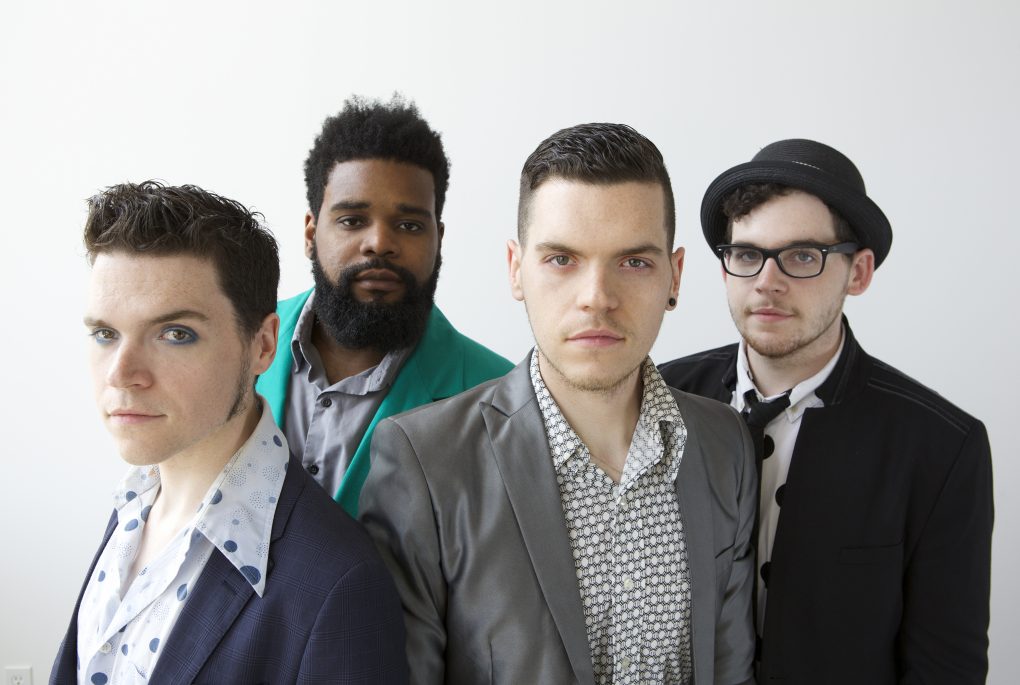


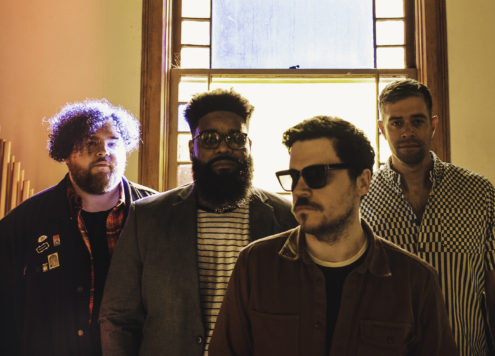

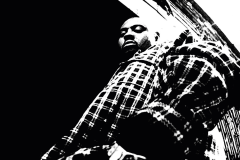
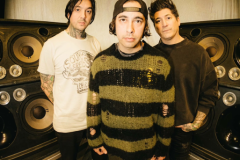
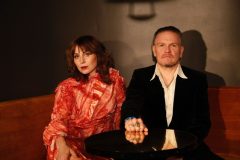
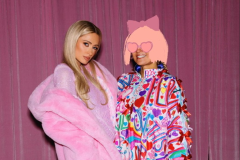

Social Media